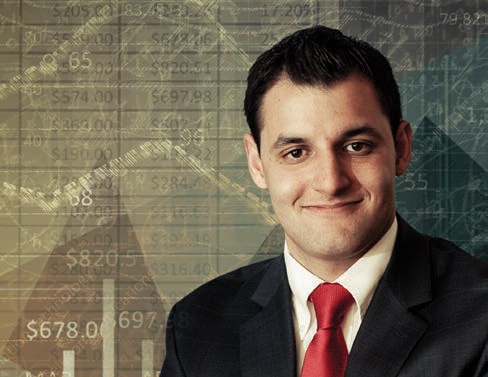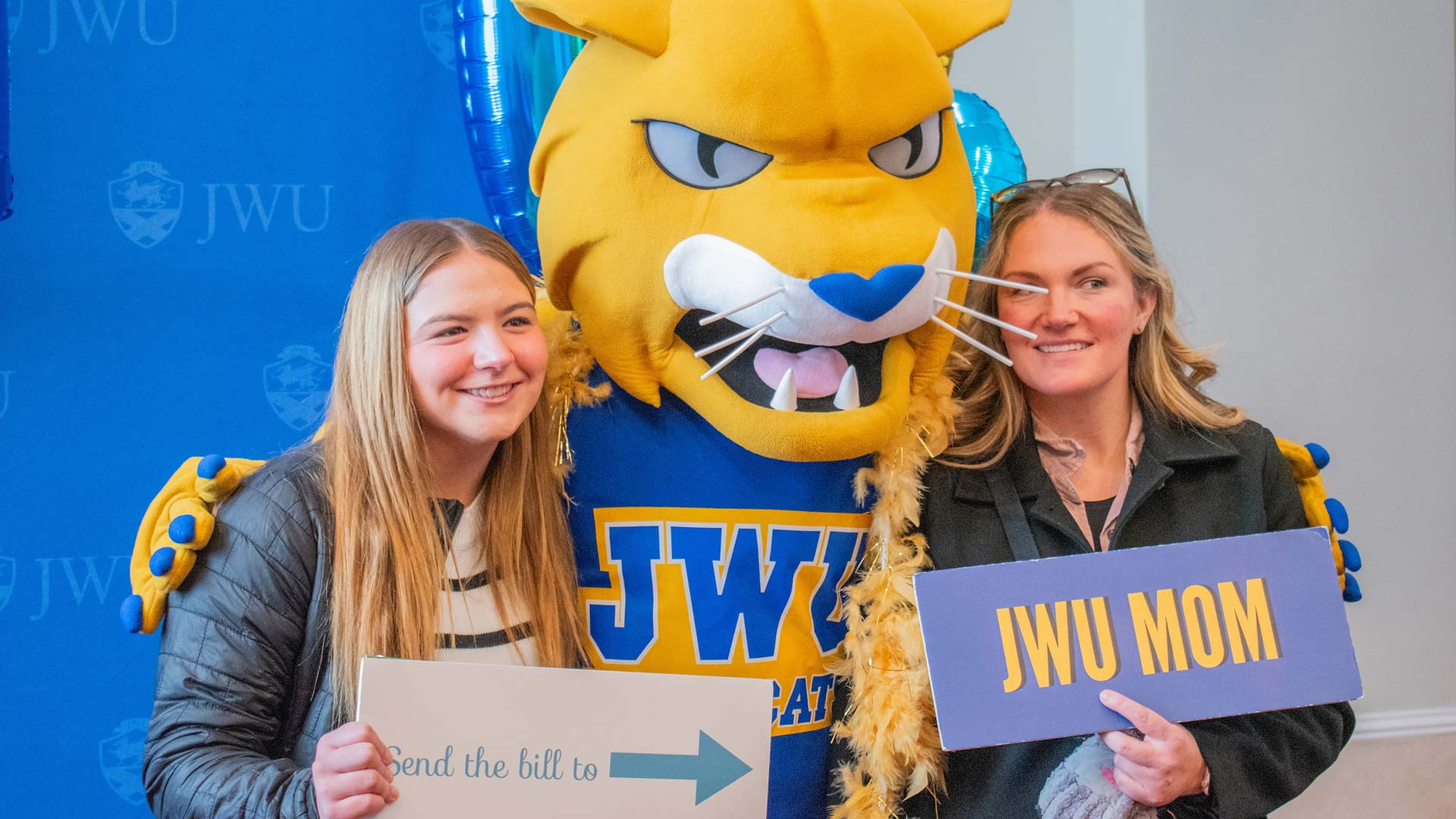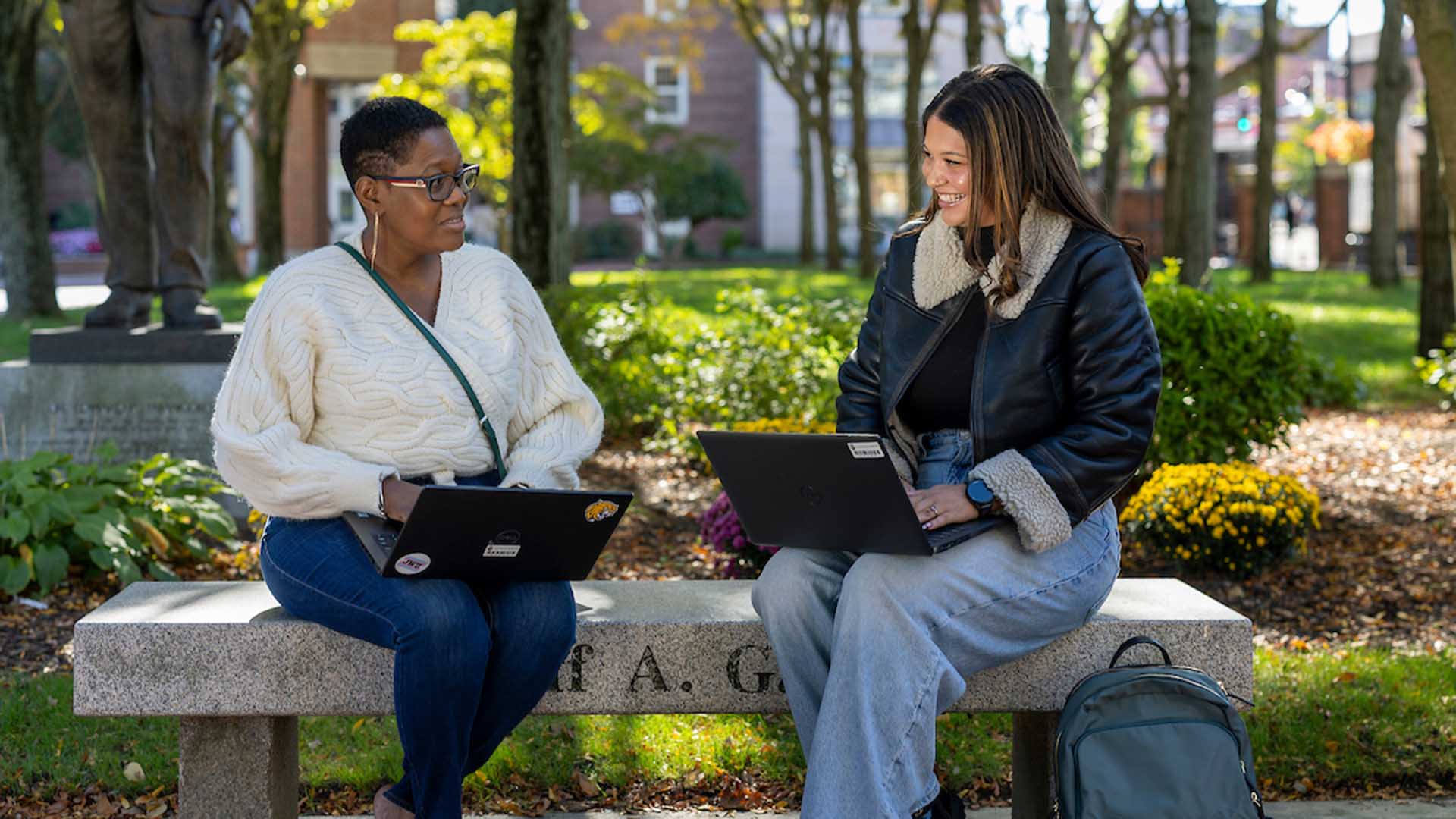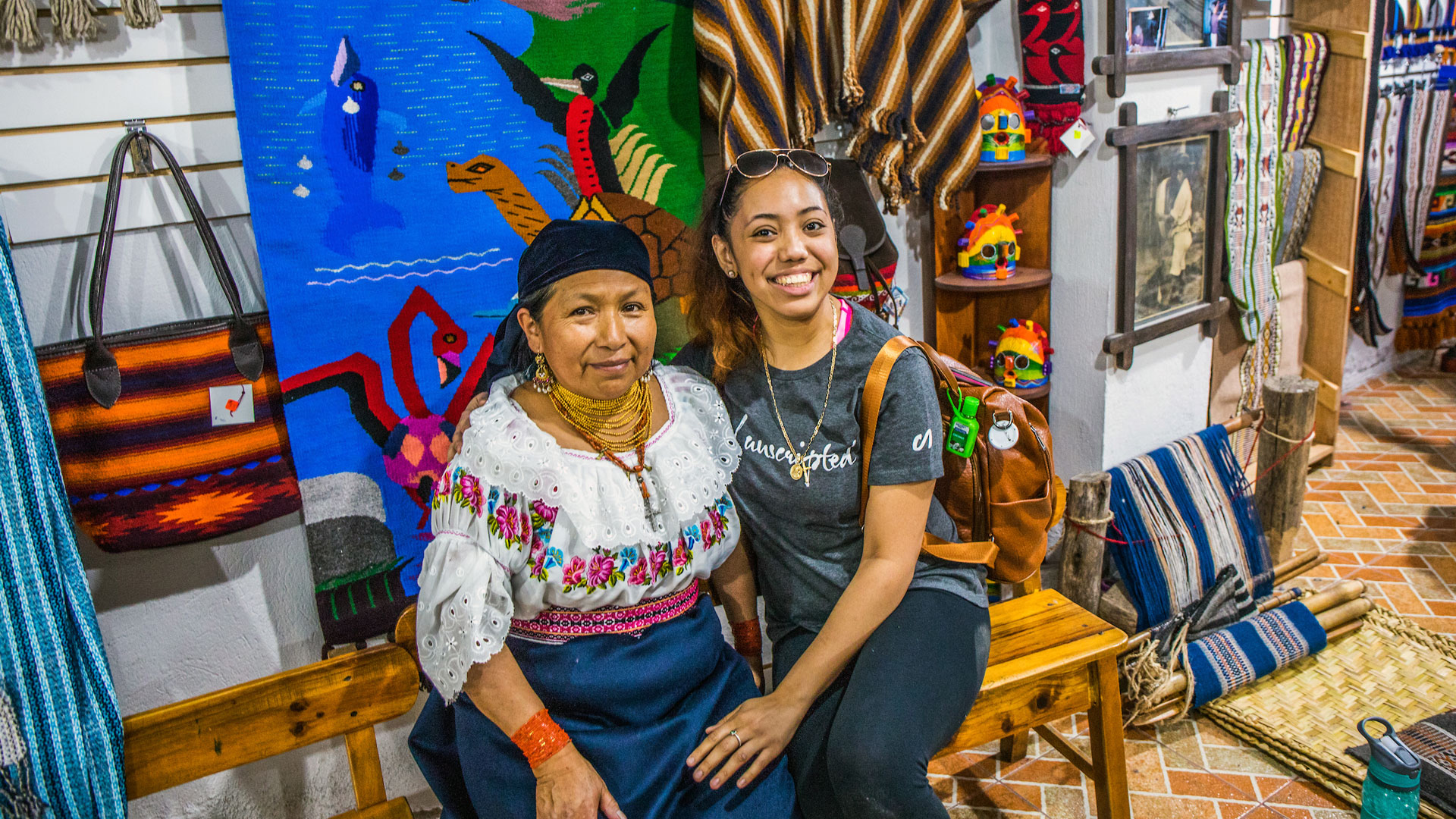Show Me the Money: Meet the Wildcats of Wall Street

After a generous commitment from the JWU Board of Trustees Investment Committee, the Finance and Investment Academy hopes to turn play money into hard cash.
“We’re the type of people who hope to leave our mark on a place,” says Devin Rainone '15.
Rainone, who graduated in May, is the outgoing president of the Johnson & Wales Finance and Investment Academy (FIA). And the fact that there is even something called the “Johnson & Wales Finance and Investment Academy” is proof of his legacy-leaving ability.
There was no such organization when Rainone and his fellow co-founders (7 students, scattered between the 2013, 2014, and 2015 graduating classes) first arrived on campus. Now, as Rainone heads to New York City for a job in the financial product sales & analytics training program at Bloomberg LP, the organization has remarkable momentum.
"We’re the type of people who hope to leave our mark on a place."
Consider a few facts:
- For the last two years, FIA has hosted annual “Career Chat” events that have brought working professionals — ranging from Fidelity brokers, to Morgan Stanley VPs, to representatives from Oppenheimer and Citizens — to speak to students about their careers. April 2015’s Career Chat brought together more than 30 professionals and 55 students.
- April 2015 also brought a FIA-organized, two-day finance seminar from the education firm, Wall Street Prep. Wall Street Prep, famous for its “boot-camp”-style seminars on Microsoft Excel and other topics, had previously given seminars at Harvard, Wharton, and MIT, but this was its first session at a Rhode Island university.
- Earlier in 2015 the FIA launched a virtual investment fund that provides students hands-on investing experience, minus the real-life stakes. As of early August, the fund had produced 17.35% returns on an initial (virtual) investment of $100 million, more than 9.37% points higher than projected goals.
- Soon, FIA members will be investing real money, too. In the spring of 2015, after a rigorous research/proposal-writing/PowerPoint campaign from FIA members, the Board of Trustees approved up to $1 million over time with an initial investment of $100,000 from the school endowment for FIA investment. In other words, in the coming years, real-money investing will become a part of a Johnson & Wales undergraduate education, for interested students. Rainone says that when he heard the news about the board’s investment, he was looking for an apartment to rent in Jersey City, New Jersey. “I almost fell into the river,” he says, with a laugh.
So, how did all of this happen?
The story of FIA begins in the 2012-13 academic year, when 4 Johnson & Wales students traveled to the Redefining Investment Strategy Education Forum (RISE) conference in Dayton, Ohio. Investing competitions are a core part of the conference, but JWU students were unable to compete due to the lack of a robust, student-run finance group back on campus. FIA co-founder Marquis Cooper '14 remembers thinking, “There’s no reason that you have all of these other schools competing, and JWU isn’t a part of that.”
And so when JWU’s RISE contingent returned to Providence, they went to work. They met with faculty advisors. They conducted research on finance organizations and student-run funds at other schools. One report they submitted to JWU administrators cited a 2007 survey that found that “over 289 universities in the United States and 24 international institutions had a student managed investment program,” with collected investments totaling more than $120 million. The report also noted Brown University’s $240,000 student-run fund, despite the school having no formal business or finance degree program.
After conducting its research, the FIA founders drew up a strategic plan with benchmarks that included establishing a simulated portfolio by 2014-15, establishing a virtual trading room by 2015-16, and establishing a real-money fund “JWU Wildcat Investment Portfolio” by 2017-18. The co-founders also wrote a constitution built around 4 key pillars:
- Professional Networking Opportunities
- Education
- Investment Research
- Participation in Financial Planning and Investment Conferences
Within a year of the RISE conference, the Johnson & Wales Finance and Investment Academy was officially recognized by the Student Government Association (SGA).
“I have not seen a student organization like this, ever,” says Finance Professor Jean Holt, one of the group’s faculty advisors. “They are so committed … they have transformed this curriculum to have an experiential thread through it that looks very much like the culinary curriculum.”
Nowadays, when you talk to FIA members and learn about its programs, you wouldn’t guess it is a fledgling campus group. In fact, with titles like “director of external affairs” and “director of research,” it doesn’t much look like a campus group, at all. “We tried to run it actually like a company,” Rainone says.
This professionalism is part of the point of the group. Rainone says that his FIA experiences were a major conversation topic during his post-graduation job interviews. And, on a more basic level, he credits FIA with helping him gain greater fluency in the language of finance.
His co-founders agree.
“I think our degree will become much stronger in the long run because of these kinds of projects,” says Benjamin Kantor ’15, who now works in the assurance staff for Ernst & Young, in Chicago.
Cooper, who currently works as an audit associate at Gray, Gray & Gray, an accounting services firm in Massachusetts, says the project is the perfect example of the principles he practiced while serving in the SGA.
“I believe firmly in shared governance in higher education, [among] students and staff and administrators,” he says. In FIA, Cooper sees “collaboration between students with amazing ideas wanting to take an active role in their own education, and administrators and staff taking the role of giving them the resources and the tools to do so.” Thanks to programs like Wall Street Prep, he adds, JWU students are going to be “15 steps ahead of their competitors” when they enter the job market.
"I got the essence of being a real-world kind of firm. This really assured me to go in that direct path with my career."
Aside from the satisfaction of watching their legacy take root, these co-founders also enjoy an added bonus: unique memories. Take, for example, the day in June when 4 past, present and future FIA leaders presented the project to the Board of Trustees, in an upper-floor conference room at Providence’s Biltmore Hotel. Each speaker received personal introductions from Chancellor John J. Bowen '77 and Finance Professor and School of Business Dean Lou D’Abrosca. And, after the presentation, the FIA team fielded questions and chatted with the trustees.
“It was probably one of my top two memorable moments while I was at JWU,” Kantor says.
The other?
Delivering a speech at the 2015 commencement.

SOUND INVESTING
During the Winter 2014-2015 term, 4 JWU undergraduates took an independent study with Professor Jean Holt called “FISV 4050 : Portfolio Management and Analysis.” The main project the students tackled was the management of a virtual investment fund — the “JWU Wildcat Investment Fund” — worth $100 million. Although the money wasn’t real, the research, companies, and financial strategies certainly were. Former JWU FIA President Devin Rainone ‘15 recently answered a few questions about the experience.
HOW THE FUND WORKED
We were each designated a specific sector. So, for example, I managed two: the consumer discretionary and industrial sectors. Tiffany Courtemanche took on healthcare, Alissa Lashley had the technology sector, and Josh Obregon handled the financial sector. StockTrak Global Portfolio Simulations — StockTrak, for short — that’s where we executed all the trades. The research was conducted via Bloomberg, Morningstar, finviz [short for “Financial Visualizations”], and Yahoo Finance. Whenever we had an investment decision, 3 out of 4 group members had to agree.
AN EXAMPLE OF AN INVESTMENT DECISION
One of them was JetBlue. At the time oil was declining pretty heavily; if oil is declining, who is that going to help out? In essence, it helps transporting companies, airports, and, really, the typical consumer, because 70% of spending comes from the consumers. So if oil goes down, that should give more discretionary income to consumers, and they’ll spend, which is why we invested heavily in the consumer discretionary sector. Or they’ll save, which is why we invested heavily in the financial sector as well. With JetBlue, they had a strong price-to-earning ratio and were kind of near the 5-year low, so we’d have more upside in the long-term. So far, JetBlue is our fourth-best performing position. It’s returned 59.7%.
HIS TAKEAWAY FROM THE EXPERIENCE
For me, I got the essence of being a real-world kind of firm. I got a little taste. I love mutual funds, investments and portfolio management, so this really assured me to go in that direct path with my career.
PHOTOS BY PETER GOLDBERG • PHOTO-ILLUSTRATION BANNER BY STEPHEN WEBSTER • L-R: MARQUIS COOPER '14, BENJAMIN KANTOR '15, DEVIN RAINONE '15 + TIFFANY AUBEE '17



